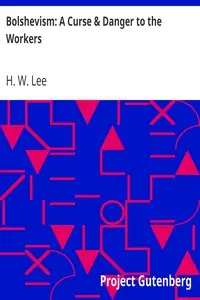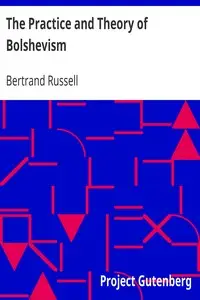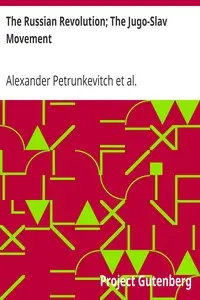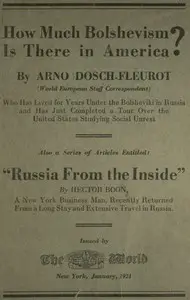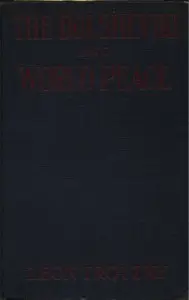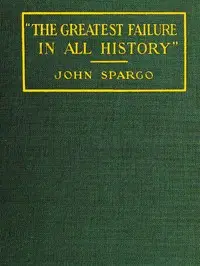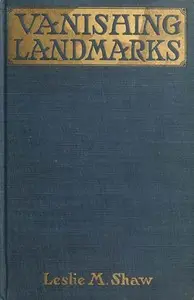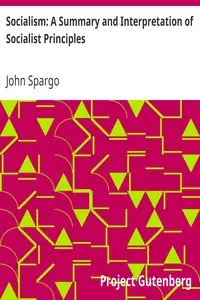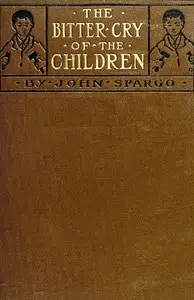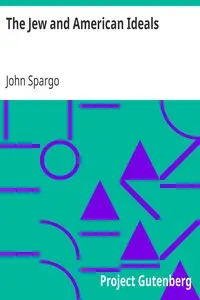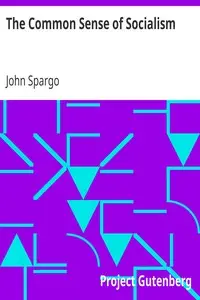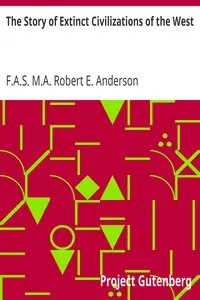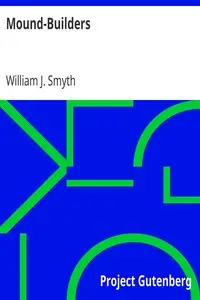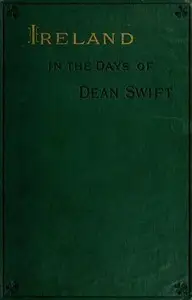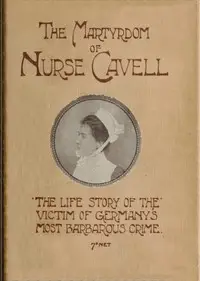"Bolshevism: The Enemy of Political and Industrial Democracy" by John Spargo presents a critical analysis of Bolshevism and its effects on democracy, largely focusing on revolutionary Russia's political and industrial landscapes. The book aims to give a complete view of Bolshevism, dissecting the beliefs, plans, and behaviors of the Bolsheviks, while comparing them to democratic ideals. Starting with the author’s stated intention to explore Bolshevism fairly and objectively, it moves through the historical conditions that enabled Russia’s revolutionary movements, spotlighting influential people and significant social changes. With the stage set by Russia's failing government and the suffering of its workers, it then studies the revolutionary history, with an emphasis on the philosophical roots of Bolshevism and the author's commitment to accuracy.
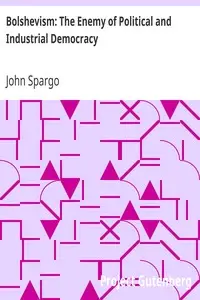
Bolshevism: The Enemy of Political and Industrial Democracy
By John Spargo
Venture into a historical analysis where a rising political movement clashes with democratic ideals amid the backdrop of a nation in revolution.
Summary
About the AuthorJohn Spargo was a British political writer who, later in life, became an expert in the history and crafts of Vermont. At first Spargo was active in the Socialist Party of America. A Methodist preacher, he tried to meld the Protestant Social Gospel with Marxist socialism in Marxian Socialism and Religion: A Study of the Relation of the Marxian Theories to the Fundamental Principles of Religion (1915). He also founded a settlement house in Yonkers, N.Y. Spargo moved steadily to the right after 1917 when he supported American intervention in World War I. With AFL leader Samuel Gompers he organized the American Alliance for Labor and Democracy in 1917. Spargo helped draft the Colby Note that formalised the Wilson administration's anti-communist policies. He strongly denounced the Bolshevik Revolution in Bolshevism: The Enemy of Political and Industrial Democracy (1919). He opposed the foreign policy of the New Deal, especially its recognition of the USSR in 1933. He supported the House Un-American Activities Committee in the late 1930s and Senator Joseph McCarthy in the early 1950s. He endorsed Barry Goldwater In the 1964 Elections.
John Spargo was a British political writer who, later in life, became an expert in the history and crafts of Vermont. At first Spargo was active in the Socialist Party of America. A Methodist preacher, he tried to meld the Protestant Social Gospel with Marxist socialism in Marxian Socialism and Religion: A Study of the Relation of the Marxian Theories to the Fundamental Principles of Religion (1915). He also founded a settlement house in Yonkers, N.Y. Spargo moved steadily to the right after 1917 when he supported American intervention in World War I. With AFL leader Samuel Gompers he organized the American Alliance for Labor and Democracy in 1917. Spargo helped draft the Colby Note that formalised the Wilson administration's anti-communist policies. He strongly denounced the Bolshevik Revolution in Bolshevism: The Enemy of Political and Industrial Democracy (1919). He opposed the foreign policy of the New Deal, especially its recognition of the USSR in 1933. He supported the House Un-American Activities Committee in the late 1930s and Senator Joseph McCarthy in the early 1950s. He endorsed Barry Goldwater In the 1964 Elections.

